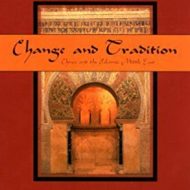Government, family, work, relationships, and education? All these have something in common and that is being a human-being. However, some may think deeper into this aspect that being a human also has to do with success, choices, wants/needs, and dreams; the list continues if you ask anyone on the street what is it like to be a human. However, in the book, The Heritage of Chinese Civilization, according to Confucius a man born in 551 B.C. who received education in writing, music, and rituals, believed a different philosophy around being a human-being. Confucianism originates from Confucius (hence the root of the term), which is known as Kong Fuzi or Master Kong in China. In addition, this term is defined as a system of philosophical and ethical teachings. Such teachings involve serving spirits, gods, partaking in rituals, and understanding the truth on how “society depends on the morality of its members.” Since society can shape its members and those who follow may be heading on the right or even the wrong path. Although, any common person can follow a path but not understand it, and that is what Confucius believed separated a common person from a gentleman. With that being said, Confucius based his teachings on five books, as followed: The Book of Changes, The Book of History, The Book of Poetry, The Book of Rites, and The Spring and Autumn Annals. These books involve metaphysical truths about the universe, proper behavior in correlation to forces within nature, documents and even speeches from the early Zhou; also an edited version of reflection by Confucius moral judgements on historical figures. Confucius educated a gentleman of these classics that conformity to the emperor, hierarchy, and loyalty were what the philosophy was all about. However, it was very hard to find one who successful followed these classics without the desire to seek profit and engage in physical labor. Confucius did not believe in modern needs and ideas of equality, but no man was “fond of virtue as he is of beauty in women.” He also was unable to find a ruler to advise and educate on this philosophy prior to his death. As China progressed into the modern age this philosophy was lost along the way and later adopted in the second century.
In recent years, the Chinese government has moved back to the Confucius’s philosophy but using a smaller version of it, and integrated this system more into a political Communist party. China is trying to steer away from what the West wants such as democracy, human rights, and fend off bad ideas, using Confucianism as its structure. However, one of Confucius concepts was “harmony” and spiritual morals but as stated in this article, “…what the Communists mean by harmony is a society where there’s no dissent of party rule.” Whereas, this concept of harmony is rather different from what the Confucius was pushing, he wanted “…a society where everyone fulfills their responsibilities and creates a harmonious situation where the whole country prospers.” This article made me think of how people tend to twist the truth about certain concepts and create a different one that may not even be the right thing to do, instead of following the original concept. This demand for power, rebellion, and control is not what the Confucius strived to teach. The Chinese government is twisting the confucianism concept to control the people to follow this new system to which the government leads, and not have the country that prospers in real harmony as a whole just as the original concept of confucianism illustrates.
